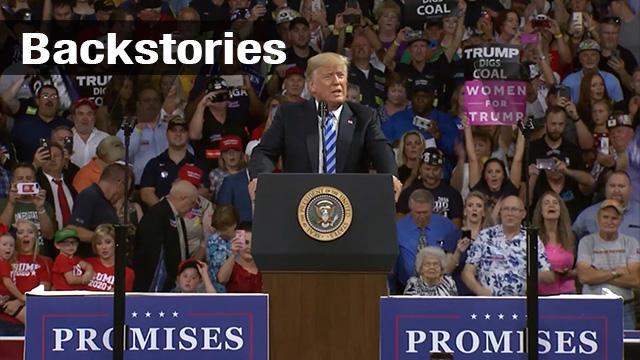US Midterm Elections: What's at Stake
The midterm elections happen 2 years after every quadrennial presidential election.
Candidates are vying for 35 out of 100 Senate seats and all 435 seats in the House of Representatives. Elections will also take place for governor posts in 36 out of the 50 states.
The midterms come halfway through a president's 4-year term. It's fair to say that voters can use the polls to deliver a verdict on the first half of the president's term.
Typically after midterms, political maneuvers to choose candidates for presidential elections come to light. That's why midterms are seen as preludes to presidential elections. The next presidential vote will come in 2020.
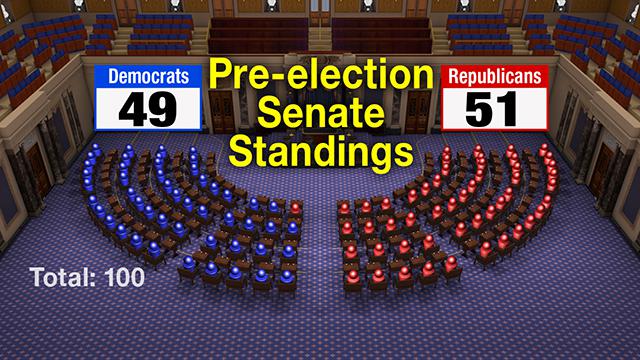
The Senate has 100 seats. The Republicans now have a 51-seat majority while the Democrats occupy 49, including 2 independents who caucus with them. The margin is only 2.
35 of the Senate seats are up for grabs in this year's midterms. Democrats currently have 26 seats of the 35, meaning that in order to regain majority in the chamber, Democrats have to win 2 more seats.
Both parties are seeking to win enough to form a majority with their uncontested seats.
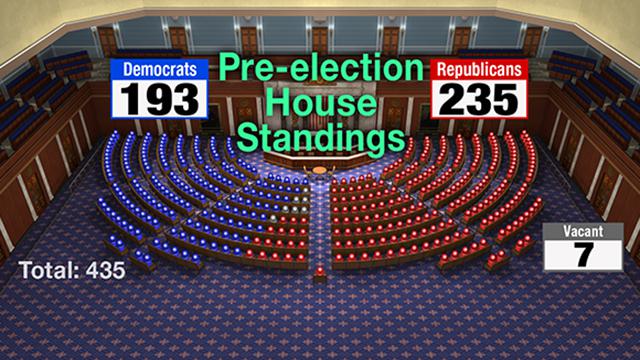
Meanwhile, all 435 seats in the House of Representatives are up for election. The chamber currently has 235 Republicans and 193 Democrats, with 7 vacant seats.
The Democrats need at least 25 more seats to win a majority of 218.
Historically, the party of the incumbent president has taken a hit in most midterms, suffering an average net loss of 4 seats in the Senate and about 22 in the House over the past 3 decades.
President Donald Trump is a Republican. He will have difficulty running the government smoothly if his party loses its majority in one or both of the chambers.
Additionally, Trump may face increased risks of impeachment over issues such as his alleged collusion with Russia during his 2016 presidential campaign. If this scenario transpires, it will have a significant impact on the next presidential election in 2 years' time.
But if the Republicans manage to keep their majority in both chambers, Trump can claim he has won the voters' mandate to promote his political agenda.
That will also make it easier for him to gain support from his party, and help him if he decides to run for a second term in 2020.
The economy under Trump
Economic boom
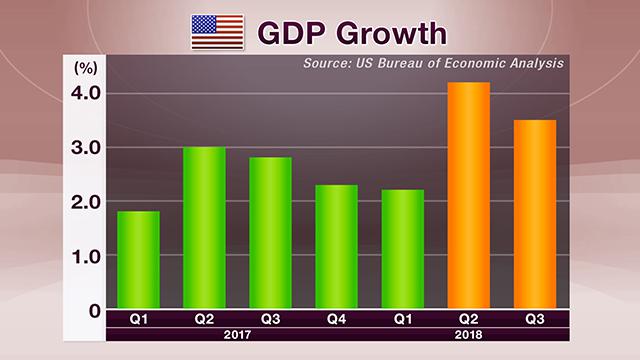
US voters are headed to polls in an upbeat mood, as the country continues to enjoy a strong economy. The GDP for the July to September period grew at an annualized rate of 3.5%, marking an expansion of above 3% for the second straight quarter. And there are plenty of jobs. The unemployment rate has fallen to the lowest level in nearly half a century.
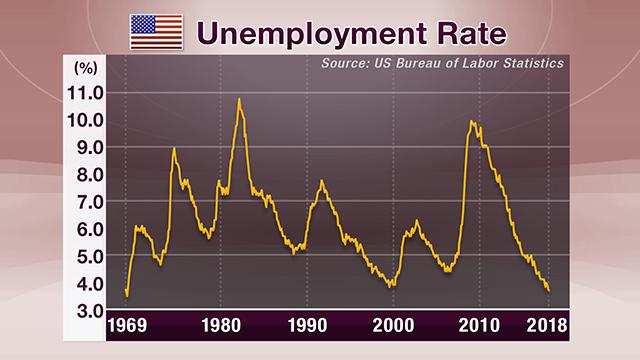
Trump says this is the result of his administration. He claims his pro-growth policies, including deep corporate tax cuts and deregulation, are the main forces behind the robust economy. “I have created such an incredible economy, I have created so many jobs," he said at a rally in Montana. "I’ve made this country so great!”
Trump’s trade “triumph”
One of Trump's main campaign promises was the revision of what he called unfair trade pacts. And he has largely made good on this. He pulled out of the Trans-Pacific Partnership almost immediately after taking office. The North American Free Trade Agreement has been renegotiated. And he has pressured key partners, including Japan and the European Union, into bilateral talks toward what he considers more favorable deals. He has forced these parties to the negotiation table largely by threatening steep tariffs on key products.
But when this method didn't work with China, Trump followed through on his threats, slapping tariffs on a wide range of imports. Beijing hit back with its own duties on American goods, leading to a trade row between the world’s two largest economies.
Warning signs
Trump's propensity to play hardball with trade partners is unnerving American consumers and businesses. The confrontation with China may end up backfiring, resulting in higher prices of goods. This would hurt US households and cool consumption. Some farmers and manufacturers say Beijing’s tariffs on US agriculture and industrial products are beginning to hurt sales. And with the sharp declines and volatility in global stock markets in recent weeks, the US economy does look to be under threat.
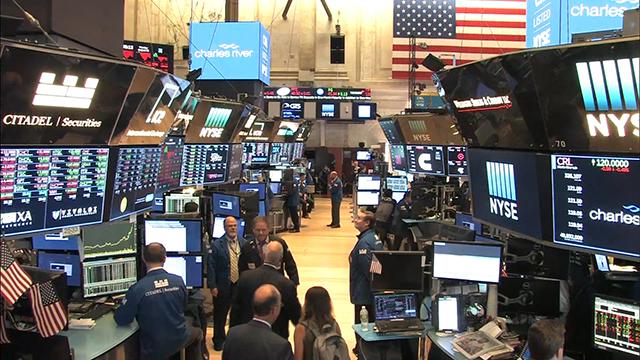
Takashi Imamura, Director of the Marubeni Research Institute says if the Democrats win back the House as polls are suggesting, they could act as a check on Trump’s trade policies. But it remains to be seen whether voters see the election as this sort of referendum.
American Diplomacy
When it comes to American voters, foreign policy may not be at the top of their minds when choosing a candidate in the mid-terms. But that doesn't mean the outcome won't have a global impact. The makeup of the next Congress could be a big factor for a president who's known for shaking up a liberal world order.
Russian alleged meddling in presidential election
Hanging over Donald Trump's presidency like a dark cloud is the Russia issue. US intelligence says Moscow and its agents meddled in the 2016 election.
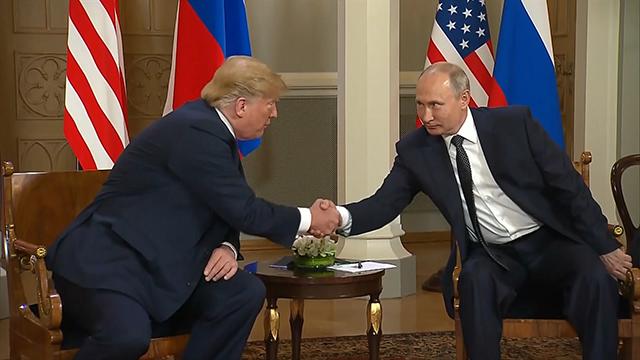
At the US-Russia summit in July, Russian President Vladimir Putin denied the allegations. However, Trump's response after the meeting started a firestorm at home. He said at the news conference, "I have President Putin. He just said it's not Russia. I would say this: I don't see any reason it would be.” Following lots of pressure even from his aides, he had to say he misspoke. The special counsel is continuing the investigation. The question now is whether Trump's election team colluded with the Russians. Trump has repeatedly denied it, calling the probe a "witch hunt."
Withdrawals from international agreements
Despite all the time and energy the Russia issue has consumed, it hasn't stopped Trump from upending US foreign policy. He's pulled his country out of some international agreements including the Paris Climate Agreement, Trans-Pacific Partnership and Iran nuclear deal. He's also gone where other presidents have refused to go -- the relocation of the US embassy in Israel to Jerusalem.
While his supporters say he's following through on anti-globalist election promises, his critics accuse him of upsetting world order and alienating allies. At the World Economic Forum in January, German Chancellor Angela Merkel said that isolation would not bring the world anywhere and that protectionism is not the true answer.
Relations with North Korea
Trump is also being accused of cozying up to the world's strongmen and dictators, especially the North Korean leader Kim Jong Un.
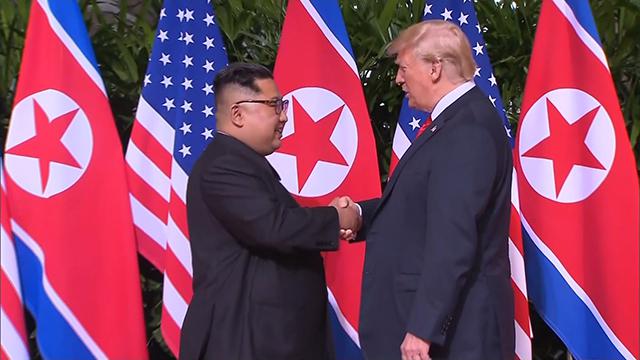
After a series of provocative actions by the North and a war of words between the two sides, Trump and Kim realized a historic summit which ended up with vague promises on the North's denuclearization. But Trump has framed the issue as a major foreign policy accomplishment, saying that the North is no longer a nuclear threat. He also says they fell in love after the Singapore summit.
While the midterms are not a presidential election, if Republicans maintain majorities it could further embolden Trump. On the other hand, big losses could mean speed bumps or even a full stop if Congress decides to take further action over the Russia issue.
Immigration Policy
In the run-up to the US midterm elections, President Donald Trump has looked to draw attention on the issues most important to his base. At the top of this list is immigration.
Trump has made little progress on his controversial campaign promise of building a wall along the US-Mexico border. Despite this setback, he has remained committed to putting forward extreme hardline immigration policy.
'Migrant caravan'
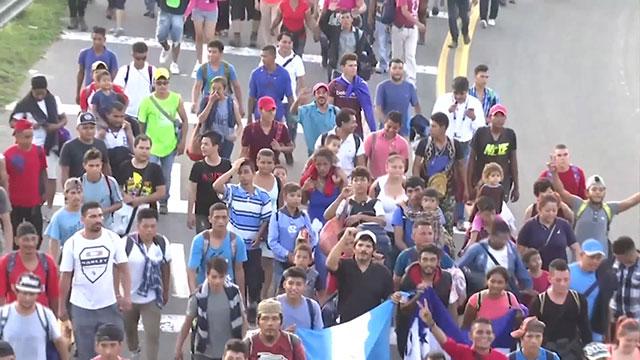
In the weeks leading up to the election, Trump has been repeatedly pointing to the purported dangers of a migrant caravan headed for the US. He is referring to a group of several thousand migrants from El Salvador and Honduras walking to the US-Mexico border to seek asylum. They say they are trying to escape violence and poverty in their countries.
Trump has put the spotlight on the progress of the caravan, making the case to voters that whether it enters the US depends on who wins the election.
Two years of immigration policy

One of Trump's first acts after taking office was to ban people from seven Muslim-majority countries from entering the US. He claimed the move was aimed at keeping out terrorists, but most were skeptical of this given his disparaging language toward Muslims during the election. Several days of chaos at airports across the US ensued.
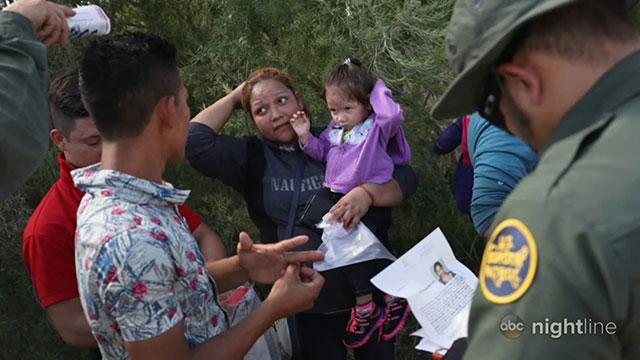
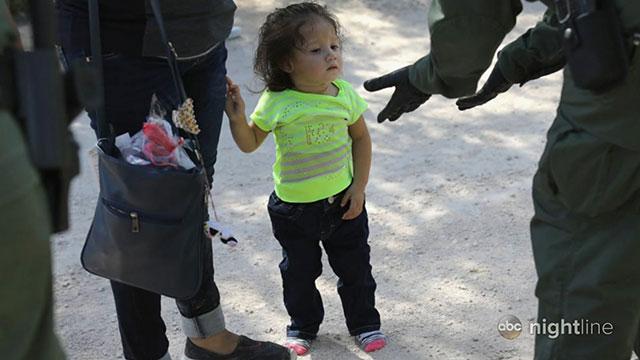
Since then, Trump has increased border patrols and cracked down on undocumented immigrants. This year, thousands of families trying to enter the US were separated upon arrival at the border. The parents were put in jail for trying to illegally enter the country, while the children were taken into government custody. This was met with immense public backlash, leading Trump to promise to reunite the families. But many were nonetheless kept apart for months, with an unknown number of children still separated from their parents.
Divided States of America
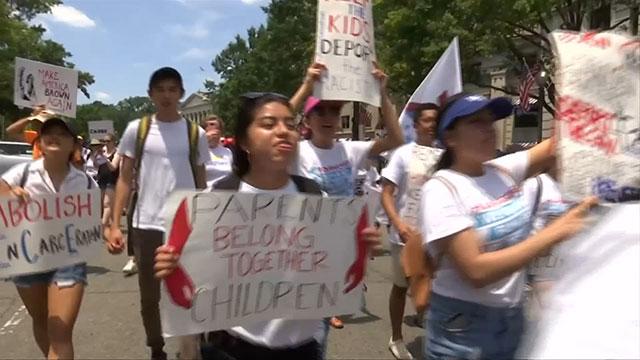
Trump's extreme immigration policy has led to massive protests across the country.
"We don't want any more discrimination, deportation," said one protestor who emigrated from Mexico.
But a large part of America is supportive of these policies.
A resident in Hazleton, Pennsylvania says the immigrant population in her community is rapidly increasing and she doesn't welcome the change.
"A lot of foreigners that we have been getting don't work," she says. "They want everything for nothing."
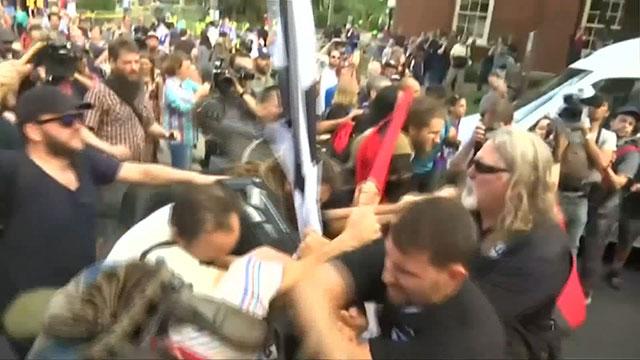
In August, 2017, a woman was killed in Charlottesville, Virginia after a man drove his car through a crowd of counter-protestors at a white supremacist rally. Dozens more were injured.
Trump's language after the incident seemed indicative of the increasingly deep divisions in the country.
"You had a group on one side that was bad and you had a group on the other side that was very violent and nobody wants to say that," he told reporters.
The remarks were widely condemned for equating counter-protestors to white supremacists.
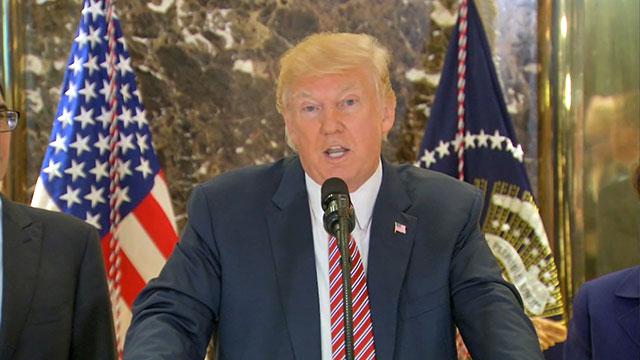
Yet despite the criticism, Trump believes his words and actions are validated by the support he gets from his base. A Gallup poll last month indicated nearly 90 percent of Republicans support him as president. It remains to be seen whether his closing argument of stoking fears of an immigrant influx will be enough to keep the Democrats from making significant gains in both houses.
